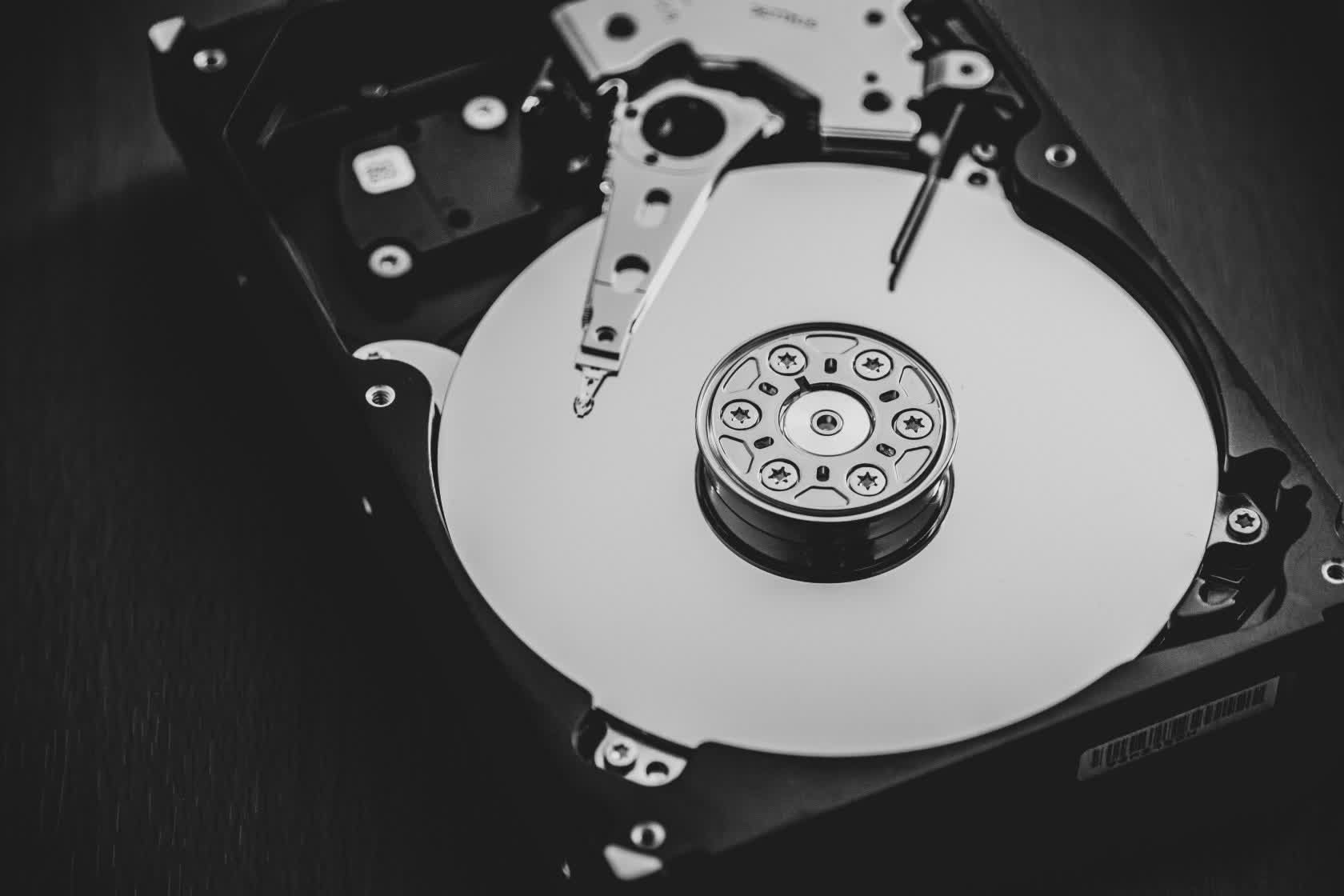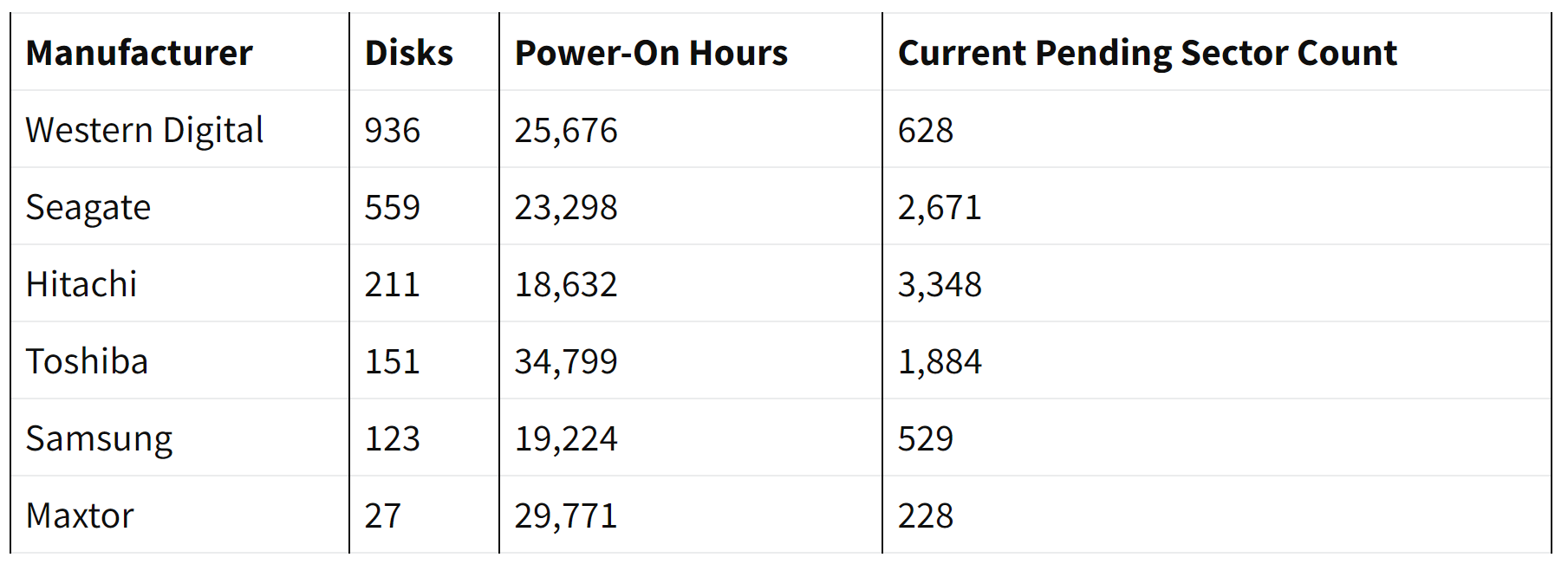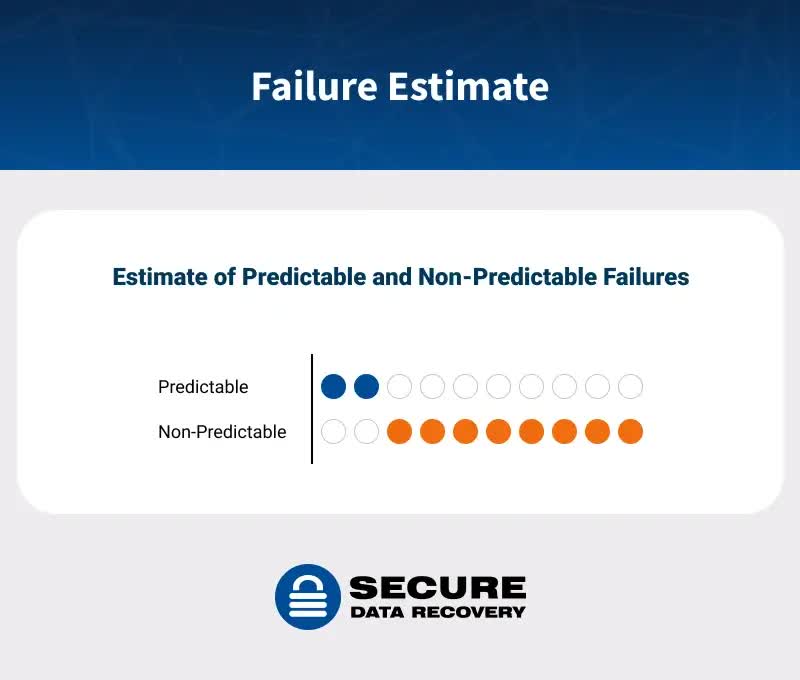In context: While the popularity of SSDs continues to increase, some users still prefer to have a trusted hard drive for their affordable costs and high storage capacities. However, a recent study shows buyers may not always pick the most reliable HDDs.

Recently, the typical usage of a hard disk drive (HDD) has shifted drastically. As solid-state drives (SSDs) have become the primary storage device, HDDs are the go-to for games, file backups, or cheap additional storage. Hard drive prices have dipped significantly in the last few years, leading some buyers to include one in their computers just in case. So finding a reliable one is just as important.
Timothy Burlee from Secure Data Recovery wanted to find out why HDDs fail and which manufacturers are the most reliable. So he tested 2,007 broken HDDs from six manufacturers--Western Digital, Seagate, Hitachi, Toshiba, Samsung, and Maxtor. Capacities ranged from 40 GB to 10 TB. He obtained the drives from customers in 2022. Berlee recorded each HDD's power-on hours and pending sector counts to determine their longevity and fail conditions.

Toshiba came out on top with an average lifespan of 34,799 hours. Hitachi finished dead last, managing only 18,632 hours. Maxtor performed impressively, nearly reaching 30,000 hours. Western Digital and Seagate HDDs clocked in around the mid-20,000-hour ranges, while Samsung scored at just over 19,000 hours, barely better than Hitachi.
The next metric Burlee looked at was "pending sector counts." Pending sectors are bad subdivisions of the discs. The average count for all drives studied is 1,548 sectors. Burlee notes that a hard drive with 1 TB of storage has "just under 2 billion total sectors." While the average may seem small, bad sectors will rapidly accumulate until the HDD becomes unusable. So higher counts are an indicator that the device is headed for failure.
In this test, Hitachi finishes last again, with an average pending sector count of 3,348—over twice the average. Seagate followed close behind at 2,671, and Toshiba didn't perform very well either, averaging almost 1,900 pending sectors. Western Digital, Samsung, and Maxtor faired far better, scoring well below the average with 628, 529, and 228 bad sectors, respectively.

Burlee estimated that of all failed HDDs he received, 80 percent suffered non-predictable failures, which include electrical issues, malware, natural disasters, or simple mishandling. He excluded these drives from the study since he was looking for HDDs that failed from regular, predictable use. It's still interesting that most hard drives fail from external factors.
Burlee concludes that the test shows that a drive slated for failure starts showing signs after about 25,233 hours or two years and 10 months of use. If your hard drive makes it past that time frame, it should be able to survive much longer. Interestingly (and perhaps unsurprisingly), many manufacturers only have 2-year warranties on their consumer hard drives, so be cautious.
https://www.techspot.com/news/97990-recent-report-claims-seagate-hitachi-hdds-most-likely.html